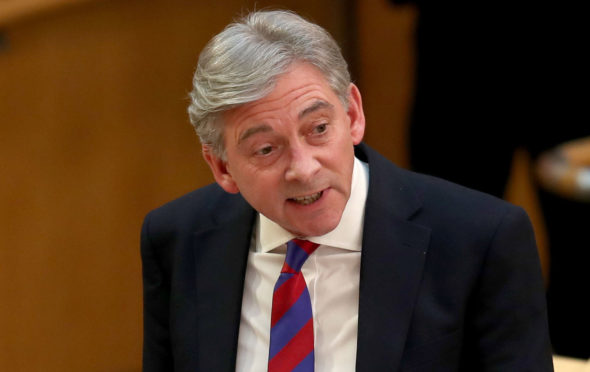
Scottish Labour leader Richard Leonard is pledging to bring new powers to Holyrood that “would make a real difference” in tackling the problems Scots face.
Mr Leonard will announce on Saturday he has set up a working group to explore “Scotland’s options for change that delivers more devolution”.
As part of that he will say the unelected House of Lords “should be abolished” – suggesting this could be replaced by a Senate of the Nations and Regions for the UK that could “begin the process of shaking up our political system that for centuries has served the political establishment not the people”.
He will also say Holyrood needs “borrowing powers fit for a Parliament” rather than the limited ability to borrow funds that it currently has.
By reforming devolution, but keeping Scotland in the UK, he will argue Labour is “tapping into an understanding, which is clear to many people that the UK state needs to be reformed”.
But the Labour leader will also insist the current SNP government in Edinburgh could make better use of existing devolved powers.
Speaking in Motherwell, Mr Leonard will promise a Labour government at Holyrood would “use the existing powers more effectively”.
He will claim: “Despite the Scottish Parliament becoming one of the most powerful devolved institutions in the world, it has failed to tackle some of the biggest issues facing Scotland.”
The Scottish Labour leader will highlight problems including child poverty, homelessness, health inequality and the gap in life expectancy between rich and poor, as well as issues such as land ownership and the “narrowing elite” who control manufacturing and service industries.
“The current Scottish Government has had the powers to prevent or at least mitigate the worst of these assaults but failed,” he will claim.
As well as committing Labour to using Holyrood’s powers “more effectively”, Mr Leonard will pledge his party will “identify what new powers would make a real difference in tackling the problems I have listed”.
He will say: “We must be able to empower working people with greater employment rights. We should have a real living wage, control of procurement, no public contracts awarded to blacklisting companies, and the right to terms and conditions of work suitable for the 21st century not the 19th century.
“The Scottish Labour government will use the powers it has to improve the lives of people on benefits both in and out of work. We need to break up the centralisation of politics and wealth and distribute power throughout the UK.
“Power must be shared not only between the nations of the UK but also regions and communities.
“We need a new way of working together that shares both political and economic power that is based on solidarity and not on competition between different parts of the UK.
“That means that at last the unelected House of Lords should be abolished. It could be replaced by a Senate of the Nations and Regions that could begin the process of shaking up our political system that for centuries has served the political establishment not the people.”
In addition to this he will argue that the private sector can not be relied on to deliver the changes needed to a “green industrial revolution” and new forms of ownership are required.
“We will not attain the transformative change we need by leaving it to market forces,” Mr Leonard will insist.

Enjoy the convenience of having The Sunday Post delivered as a digital ePaper straight to your smartphone, tablet or computer.
Subscribe for only £5.49 a month and enjoy all the benefits of the printed paper as a digital replica.
Subscribe